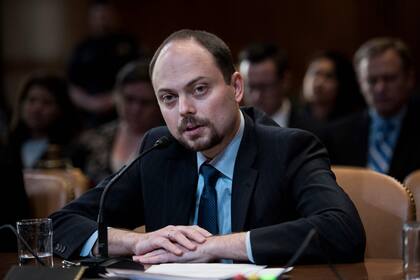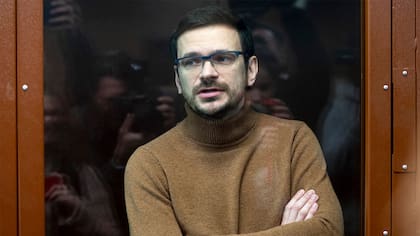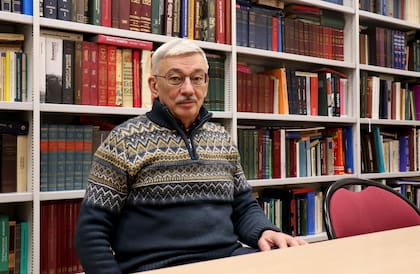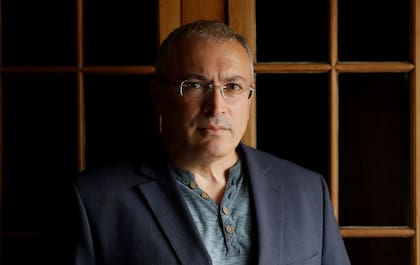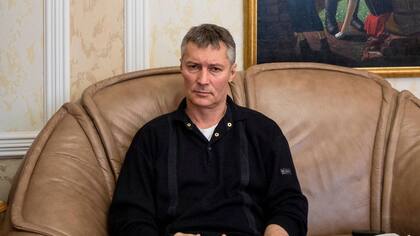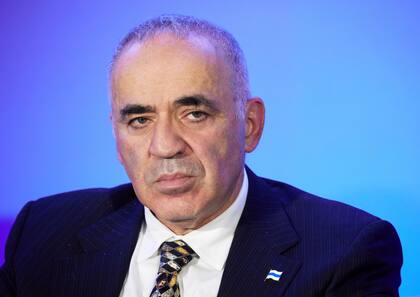A Europa é capaz de enfrentar sozinha a Rússia de Vladimir Putin?
A Europa é capaz de enfrentar sozinha a Rússia de Vladimir Putin?
Um exército independente, uma força aérea e uma bomba nuclear teriam um alto custo
The Economist, 03/03/2025
Poucas horas depois de seu partido vencer as eleições nacionais, Friedrich Merz, o provável próximo líder da Alemanha, soltou uma bomba. Donald Trump “não se importa muito com o destino da Europa”, disse ele. A prioridade era “passo a passo... alcançar a independência em relação aos EUA”. Este não era um objetivo distante. Ele não tinha certeza, disse ele, se a Otanainda existiria “em sua forma atual” em junho, quando os líderes devem se reunir nos Países Baixos, “ou se teremos que estabelecer uma capacidade de defesa europeia independente muito mais rapidamente do que isso”.
Quem pensou que Merz estava sendo alarmista foi rapidamente despertado para a realidade. Em 24 de fevereiro, em uma resolução da ONU que culpava a Rússia por invadir a Ucrânia, os Estados Unidos votaram contra seus aliados europeus, ficando ao lado da Rússia e da Coreia do Norte.
Merz não é o único “transatlanticista” convicto preocupado com o ataque de Donald Trump à Otan, a aliança que manteve a paz na Europa por quase oito décadas. “A arquitetura de segurança na qual a Europa confiou por gerações se foi, e não vai voltar”, escreve Anders Fogh Rasmussen, ex-secretário-geral da Otan, em um ensaio para a Economist. “A Europa deve aceitar o fato de que não somos apenas existencialmente vulneráveis, mas também estamos aparentemente sozinhos.”
Na verdade, pode levar uma década até que a Europa consiga se defender sem a ajuda dos Estados Unidos. A enormidade do desafio pode ser vista na Ucrânia. Os países europeus estão atualmente discutindo a perspectiva de uma mobilização militar ali para impor qualquer futuro acordo de paz. As negociações, lideradas pela França e pelo Reino Unido, preveem o envio de uma força relativamente modesta, de talvez dezenas de milhares de soldados. Eles não seriam mobilizados no leste na linha de frente, mas em cidades ucranianas, portos e outras infraestruturas importantes, de acordo com uma autoridade ocidental.
Qualquer implementação desse tipo, no entanto, exporia três fraquezas sérias. Uma delas é que isso sobrecarregaria as forças europeias. Há aproximadamente 230 brigadas russas e ucranianas na Ucrânia, embora a maioria esteja abaixo do efetivo previsto. Muitos países europeus teriam dificuldade para produzir uma única brigada com capacidade de combate cada. Segundo, isso abriria sérias lacunas nas próprias defesas da Europa.
Uma implantação britânica na Ucrânia, por exemplo, provavelmente engoliria unidades já destinadas à Otan, deixando buracos nos planos de guerra da aliança. Acima de tudo, os europeus reconhecem que qualquer implantação precisaria de apoio americano significativo, não apenas na forma de “facilitadores” específicos, como inteligência e equipamento de defesa aérea, mas também a promessa de apoio, caso a Rússia atacasse.
O fato de que a Europa teria dificuldade para gerar uma força independente do tamanho de uma divisão para a Ucrânia expõe a dimensão da tarefa prevista na visão de Merz. Atender aos planos de guerra existentes da Otan — com a presença dos Estados Unidos — exigiria que a Europa gastasse 3% do PIB em defesa, muito acima dos níveis existentes para a maioria dos países.
O Reino Unido deu um passo nessa direção em 25 de fevereiro, anunciando um plano para gastar 2,5% do PIB até 2027, mas mesmo isso pode ser insuficiente. Dizem que Mark Rutte, o secretário-geral da Otan, está propondo uma meta de 3,7%. No entanto, compensar os déficits americanos exigiria um valor bem acima de 4%.
Pagar por isso já seria difícil o suficiente. Traduzir dinheiro em capacidade também é mais difícil do que parece. A Europa precisaria formar 50 novas brigadas, calcula o centro de estudos estratégicos Bruegel, sediado em Bruxelas, muitas delas unidades “pesadas” com blindagem, para substituir as 300.000 tropas americanas que, estima-se, que seriam enviadas ao continente no caso de uma guerra. Os requisitos de mão de obra seriam proibitivos.
Fileiras de tanques
Esses números são estimativas. A sugestão do Bruegel de que a Europa precisaria de 1.400 tanques para impedir um avanço russo nos estados bálticos reflete suposições de planejamento tradicionais e provavelmente ;é um pouco exagerada. Em todo caso, esse tipo de contagem mostra apenas metade da história.
A Europa tem forças aéreas impressionantes, com muitos jatos modernos. Mas esses jatos não têm um estoque significativo de munições capazes de destruir as defesas aéreas inimigas ou atingir alvos distantes em terra ou no ar, explica Justin Bronk do Royal United Services Institute (RUSI), um centro de estudos estratégicos em Londres, em um artigo a ser publicado futuramente.
Apenas algumas forças aéreas, como a da Suécia, têm treinamento suficiente para guerra aérea de alta intensidade. Além disso, guerra eletrônica aerotransportada e inteligência, vigilância, aquisição de alvos e reconhecimento (ISTAR), ou a capacidade de encontrar e avaliar alvos, “são quase exclusivamente fornecidos pelos EUA”, observa Bronk.
Outro problema gritante é de comando e controle, ou as instituições e indivíduos que coordenam e lideram grandes formações militares na guerra. A Otan tem um amplo conjunto de quartéis-generais por toda a Europa, com o Quartel-General Supremo das Potências Aliadas da Europa em Mons, Bélgica, no topo da hierarquia, liderado pelo general Chris Cavoli que, como todos os Comandantes Aliados Supremos da Europa antes dele, é americano. “A coordenação da Otan é frequentemente um eufemismo para oficiais do estado-maior dos EUA”, diz Matthew Savill, um ex-oficial de defesa britânico agora no RUSI.
A experiência europeia na gestão de grandes formações é esmagadoramente concentrada em oficiais britânicos e franceses — ambos os países supervisionam dois “corpos” de reserva, que são quartéis-generais de altíssimo nível. Mas o Reino Unido provavelmente seria incapaz de executar uma operação aérea complexa na escala e intensidade da guerra aérea de Israel em Gaza e no Líbano. “Que eu saiba, não há nada que a Europa tenha que realmente se aproxime da escala do que os israelenses supostamente fizeram”, diz Savill.
Se os europeus forem capazes de gerar e comandar suas próprias forças, a próxima questão é se seria possível mantê-las alimentadas com munição. A produção de artilharia da Europa disparou nos três anos mais recentes, embora a Rússia, auxiliada pela Coreia do Norte, continue à frente. A Europa também tem fabricantes de mísseis: a MBDA, uma empresa pan-europeia com sede na França, fabrica um dos melhores mísseis ar-ar do mundo, o Meteor. França, Noruega e Alemanha fabricam excelentes sistemas de defesa aérea. A Turquia está se tornando uma séria potência industrial de defesa.
Entre fevereiro de 2022 e setembro de 2024, os estados europeus da Otan adquiriram 52% dos novos sistemas dentro da Europa e compraram apenas 34% dos EUA, de acordo com um artigo recente do Instituto Internacional de Estudos Estratégicos (IISS), outro centro de estudos estratégicos. Mas esses 34% costumam ser vitais. A Europa precisa dos EUA para artilharia de foguetes, defesa aérea de longo alcance e aeronaves furtivas. Mesmo para armas mais simples, a demanda supera em muito a capacidade, uma das razões pelas quais os países europeus se voltaram para o Brasil, Israel e Coreia do Sul.
O nível de dependência em relação aos EUA não é uniforme em todo o continente. O Reino Unido, por exemplo, está unicamente interligada às forças armadas, máquinas de inteligência e indústria dos Estados Unidos. Se os Estados Unidos cortassem o acesso a imagens de satélite e outras informações geoespaciais, como mapas de terreno, as consequências seriam profundas.
Talvez a principal razão pela qual o Reino Unido exigiu o consentimento dos Estados Unidos para deixar a Ucrânia disparar mísseis de cruzeiro britânicos Storm Shadow contra a Rússia no ano passado é que os mísseis dependiam de dados geoespaciais americanos para direcionamento eficaz. A Grã-Bretanha teria que gastar bilhões para comprar imagens de substituição, diz Savill, ou recorrer à França. Por outro lado, o envolvimento britânico com os Estados Unidos também pode fornecer uma forma de pressão. Cerca de 15% dos componentes do jato F-35 usado pelos Estados Unidos são feitos na Grã-Bretanha, incluindo peças difíceis de substituir, como o assento ejetor.
Como se a tarefa de construir forças convencionais independentes não fosse assustadora o suficiente, a Europa enfrenta outro desafio. Por 80 anos, ela se abrigou sob o guarda-chuva nuclear dos Estados Unidos. Se a Europa estiver realmente “sozinha”, como Rasmussen afirma, então a questão não é apenas que as forças americanas não lutariam por ela, mas também que não sew poderia contar com as armas nucleares americanas.
“Precisamos ter discussões com os britânicos e os franceses — as duas potências nucleares europeias”, disse Merz em 21 de fevereiro, “e saber se o compartilhamento nuclear, ou pelo menos a segurança nuclear... também poderia se aplicar a nós”. Na prática, o Reino Unido e a França não podem replicar o escudo nuclear americano sobre a Europa com seus arsenais relativamente pequenos — cerca de 400 ogivas no total, em comparação com mais de 1.700 ogivas russas mobilizadas.
Os insiders americanos torcem o nariz para a ideia de que isso seja adequado para uma dissuasão, pois acreditam que a Rússia seria capaz de limitar os danos a si mesma (não importa a possibilidade de Moscou ter desaparecido) enquanto infligiria um estrago pior à Europa. Dobrar ou triplicar o tamanho dos arsenais anglo-franceses provavelmente levaria anos e canibalizaria o dinheiro necessário para construir forças convencionais; a dissuasão britânica já consome um quinto dos gastos com defesa.
Pensamento estratégico
Outro problema é que, embora a França tenha armas nucleares a bordo de submarinos e aviões, o Reino Unido tem apenas as primeiras, o que limita sua capacidade de se envolver em “sinalização” nuclear em uma crise, por exemplo, usando armas nucleares de baixo poder de destruição, pois isso arriscaria expor a posição de seus submarinos e, portanto, colocaria sua capacidade de dissuasão estratégica em risco.
Além disso, embora o Reino Unido possa disparar suas armas nucleares sem a permissão americana, ela aluga os mísseis dos EUA — aqueles que não estão a bordo de submarinos são mantidos em um pool conjunto no estado da Geórgia — e depende da cooperação americana para componentes-chave.
Esses problemas não são necessariamente insuperáveis. Conversas silenciosas a respeito da dissuasão nuclear europeia entre ministros da defesa europeus se intensificaram nos meses mais recentes. “O debate alemão está amadurecendo em alta velocidade”, observa Bruno Tertrais, um dos principais pensadores da Europa em questões nucleares. “Os britânicos e os franceses precisarão enfrentar o desafio.”
A dissuasão nuclear não é apenas um jogo de números, ele diz, mas uma questão de vontade. Putin pode levar mais a sério as ameaças nucleares vindas do Reino Unido ou da França, que têm mais em jogo do que os EUA. Essas são as questões que preocuparam os pensadores europeus durante a Guerra Fria; seu retorno marca um novo e sombrio período para o continente. “Agora”, pronunciou Merz em 24 de fevereiro, “é como se realmente faltassem cinco minutos para a meia-noite para a Europa”.
TRADUÇÃO DE AUGUSTO CALIL
